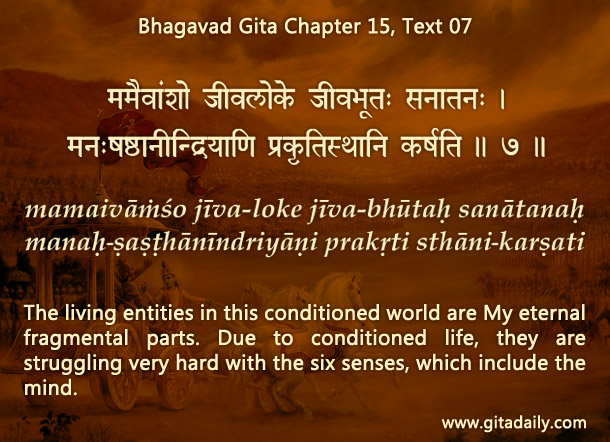In normal parlance, ‘ego’ refers to arrogance and carries negative connotations. The Bhagavad-gita uses its Sanskrit equivalent, ahankara, in this sense (16.18), but also in another sense (07.04), to refer to the subtlest of all material elements, the instrument through which the soul misidentifies with the body.
More precisely, Gita commentators refer to this sense of identification as false ego to contrast it with the true sense of I-ness, which comes from the soul, the source of consciousness. The same Gita section that deems the ego to be ontologically real (07.04) also deems the soul to be real (07.05). It states that both the ego and the soul are Krishna’s energies – the ego is one of the eight elements that comprise his material energy and the soul is a part of his spiritual energy. The same Gita (15.07) later coveys unambiguously that the soul is eternally existent, being an eternal part of Krishna.
By rejecting wholesale the sense of I-ness, voidists leave themselves defenseless against the question: When we give up I-ness, who is it that will relish enlightenment?
That the soul is real and eternal implies that our sense of I-ness is real and eternal. So, to become enlightened, we don’t need to give up this sense of I-ness; we just need to shift its locus from the body to the soul. Some voidist or nihilist philosophers claim that our sense of I-ness is the cause of all our illusion and tribulation, so it needs to be dissolved. They throw away the baby with the bath water. By rejecting wholesale the sense of I-ness, they leave themselves defenseless against the question: When we give up I-ness, who is it that will relish enlightenment?
Only when we exist can we experience anything. Only when we exist as distinct persons can we love the Supreme Person, Krishna, and delight therein. By basing our sense of I-ness in the soul, we open the door to enlightened, eternal, ecstatic life.

Explanation of article:

Leave A Comment